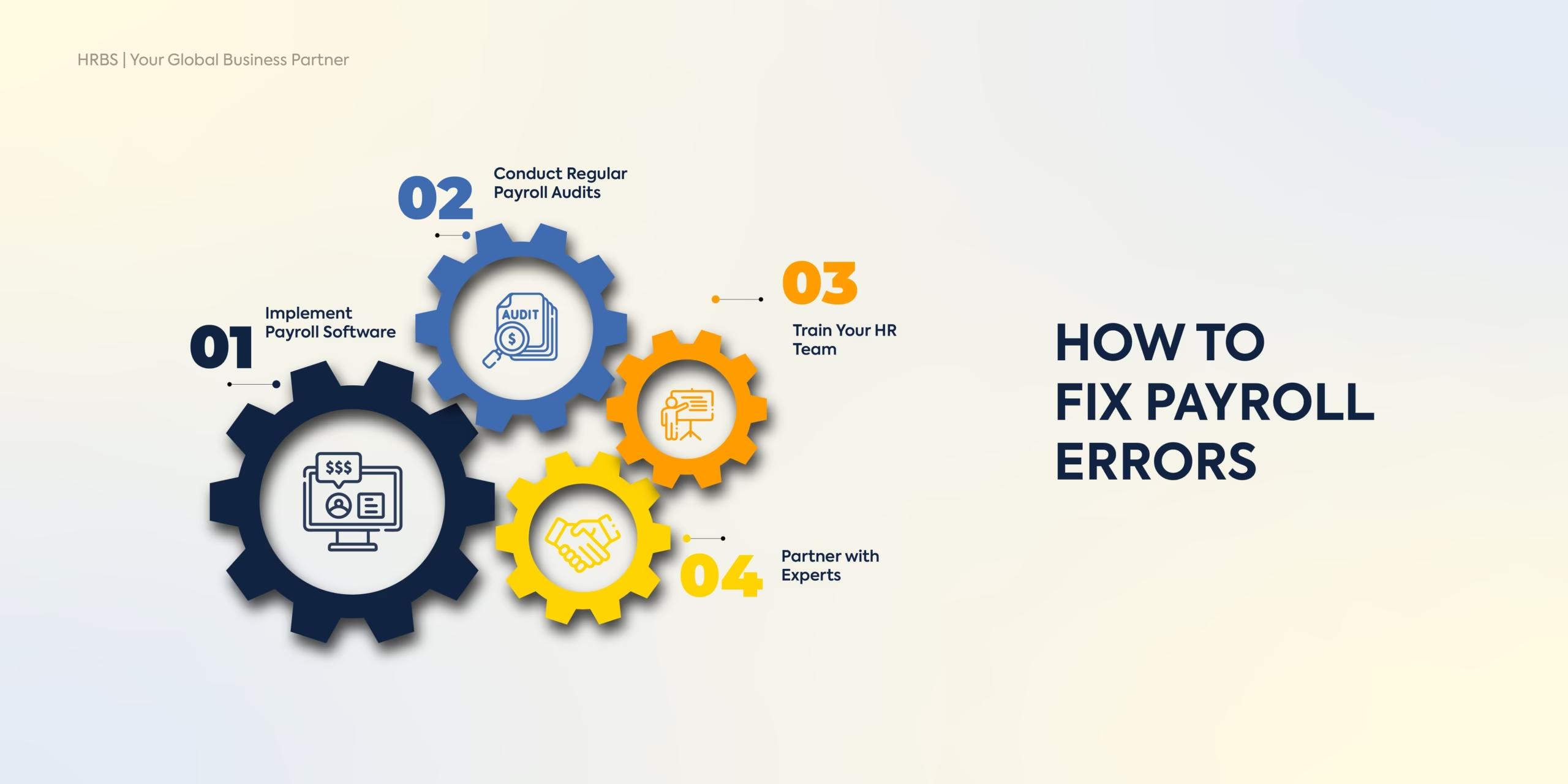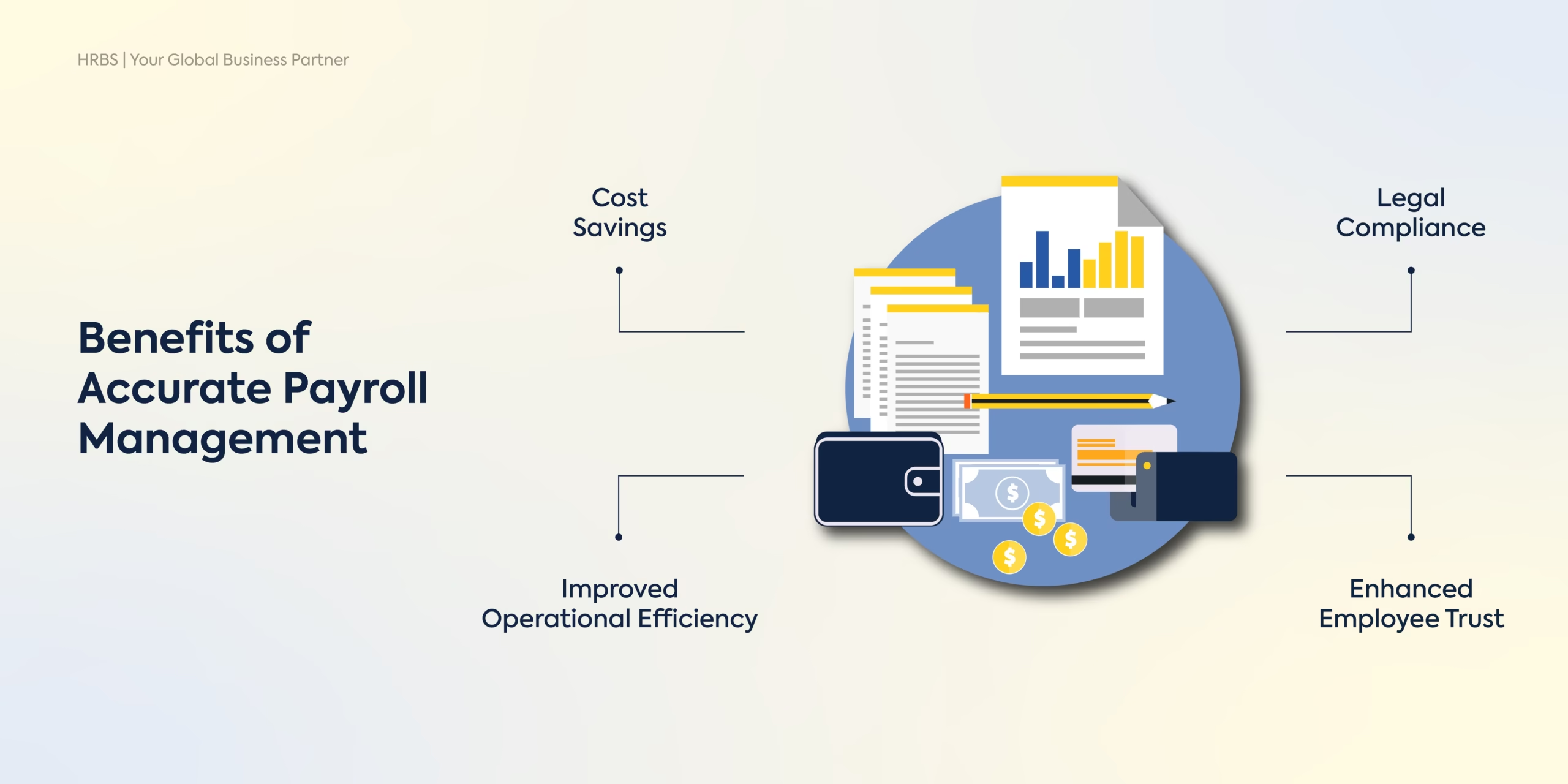Payroll errors are more common than many business owners think. In fact, studies show that nearly 88% of businesses have experienced payroll mistakes at some point. These errors range from minor miscalculations to incorrect tax deductions, and they can lead to severe issues like fines, legal trouble, and unhappy employees. For HR professionals, payroll managers, and business owners, managing payroll accurately is key to running smooth operations and maintaining employee satisfaction.
This guide covers the most common payroll errors, their potential impacts, and simple ways to fix them. By understanding and addressing these mistakes, you can ensure your payroll remains on track, avoid costly penalties, and create a reliable, compliant workforce. Let’s dive into the details and learn how to fix these issues, making payroll management easier for your business.
Common Payroll Errors
Payroll errors can happen for various reasons, including human oversight, outdated systems, or lack of training. These mistakes, whether minor or significant, can lead to costly fines, employee dissatisfaction, and legal issues. Understanding the most common payroll errors helps businesses recognize and address them before they escalate. By identifying the root causes of these mistakes, organizations can implement strategies and solutions to maintain accurate and compliant payroll systems.
- Misclassifying Employees
Misclassifying employees as independent contractors—or vice versa—can have significant tax and compliance implications. Misclassification may lead to penalties and legal disputes.
Solution: Always ensure correct classification according to tax agency guidelines. Regularly audit employee statuses and consult with HR experts when unsure. This mistake can be avoided by clearly understanding the differences between employee and contractor roles to align with labor laws. - Incorrect Tax Deductions
Incorrect tax calculations or missing tax filing deadlines can lead to significant issues, often caused by outdated tax tables or human error.
Solution: Use payroll software that automatically updates tax rates. Regularly review tax processes and double-check deductions with local regulations. Keep track of tax changes by subscribing to tax updates or using services that automatically adjust tax rates for your business. - Overtime Miscalculations
Failing to calculate overtime hours correctly or applying the wrong overtime rates can violate labor laws and cause dissatisfaction among employees.
Solution: Automate overtime calculations within your payroll system and stay updated on overtime laws. Clearly communicate overtime policies to your workforce. Review and adjust your overtime procedures periodically to ensure your calculations are aligned with the latest labor law changes. - Payroll Data Entry Errors
Manual data entry mistakes—like incorrect hours worked or missing payment details—are common but can lead to major problems.
Solution: Implement automated data entry systems, and conduct regular audits of payroll records for accuracy. Encouraging employees to use self-service portals to update personal information can reduce manual data entry errors. - Ignoring Compliance Changes
Payroll laws and regulations change frequently, and failing to stay updated can cause compliance issues.
Solution: Subscribe to legal updates or work with a payroll service provider to ensure your payroll remains compliant. Regularly schedule reviews of the most recent payroll compliance regulations to avoid any surprises during audits. - Missing Deadlines for Filing Taxes
Missing tax filing deadlines can result in severe penalties and interest charges.
Solution: Set up reminders or use payroll software with automated tax filing features to ensure deadlines are met. Utilize cloud-based payroll systems that integrate with tax filing services for seamless deadline tracking. - Incorrect Salary Payments
Mistakes in salary calculations or missed payments can damage employee trust.
Solution: Regularly reconcile payroll records with bank transactions and use payroll software with built-in error checks to avoid discrepancies. Always verify salary details and changes through a double-check system before processing payments. - Failure to Document Payroll Records Properly
Inadequate or improper record-keeping can lead to problems during audits or disputes.
Solution: Maintain both digital and physical records for all payroll transactions for at least seven years. Use cloud-based document storage systems to back up and easily retrieve payroll records when needed. - Mismanagement of Employee Benefits
Incorrect handling of benefits such as health insurance or retirement contributions can lead to compliance issues and disgruntled employees.
Solution: Automate benefit tracking, and review employee benefit plans regularly. Establish a clear benefits management process and provide employees with transparent access to their benefits information. - Errors in Direct Deposits
Mistakes in bank account information can delay payments and frustrate employees.
Solution: Implement a verification system to double-check bank details before processing direct deposits. Require employees to confirm their bank account details during onboarding and whenever updates are made.

How to Fix These Errors
Fixing payroll errors requires a proactive approach, starting with identifying the root causes of the mistakes. Regular audits, employee training, and using reliable payroll software are essential to minimize errors. By implementing these steps, businesses can maintain accurate payroll and foster employee trust.
- Implement Payroll Software: Modern payroll software offers an efficient solution to streamline payroll processes by automating calculations, tax updates, and compliance checks. These systems can help reduce human error, ensuring all payroll-related tasks are accurate and efficient. Key features like real-time updates, automatic deductions, and integrated compliance alerts keep payroll operations aligned with changing regulations, helping businesses stay compliant and save time.
- Conduct Regular Payroll Audits: Regular payroll audits—monthly, quarterly, or annually—are essential for detecting and resolving errors before they escalate. These audits help identify discrepancies such as incorrect tax withholdings or missed deductions. Proactive audits also ensure that payroll systems are functioning correctly and that employees receive accurate paychecks. Regular audits help businesses discover inefficiencies and improve overall payroll processes.
- Train Your HR Team: Ongoing training for HR and payroll teams is critical to staying informed about industry changes, tax laws, and regulatory updates. Well-trained teams are better equipped to handle complex payroll tasks, identify potential errors, and prevent issues from occurring. Regular training also demonstrates the company’s investment in its employees’ professional growth, which can improve morale and payroll accuracy.
- Partner with Experts: Outsourcing payroll tasks to payroll experts can be a game-changer for businesses looking to avoid errors and ensure compliance. Payroll professionals bring specialized knowledge, advanced tools, and best practices to minimize the risk of errors in tax calculations, benefits management, and labor law compliance. By outsourcing payroll, businesses can offload administrative duties, allowing internal teams to focus on core functions. Payroll experts also help businesses stay updated on regulations and assist with troubleshooting any payroll-related issues that arise.

Benefits of Accurate Payroll Management
Accurate payroll management ensures compliance with tax laws and labor regulations while fostering trust with employees. By minimizing errors and maximizing efficiency, businesses can save costs and improve operational performance.
- Legal Compliance: Accurate payroll management is crucial for ensuring compliance with tax laws, labor standards, and employment regulations. By avoiding payroll errors, businesses can prevent costly fines, penalties, and legal issues. Staying compliant with local, state, and federal payroll regulations helps your organization maintain its good standing and avoid unnecessary risks.
- Enhanced Employee Trust: Paying employees accurately and on time is key to building employee trust and confidence in the organization. Consistently accurate payroll processing improves employee morale, reduces turnover, and fosters a positive work environment. Happy employees are more likely to stay with the company long-term, reducing recruitment costs.
- Cost Savings: Maintaining an accurate payroll system can result in significant cost savings. It helps avoid penalties, late fees, overpayments, and other financial errors. By minimizing payroll mistakes, businesses can redirect resources toward growth, innovation, and other strategic business initiatives, improving the company’s bottom line.
- Improved Operational Efficiency: Automating payroll processes reduces administrative burdens, ensuring accuracy and efficiency. With automated payroll, HR teams spend less time on manual calculations and data entry, enabling them to focus on more strategic activities. Streamlined payroll operations enhance overall organizational efficiency and productivity, leading to a more effective workforce.
Harnessing Technology for Error-Free Payroll
In today’s fast-paced business environment, leveraging technology is critical for ensuring payroll accuracy. Cloud-based payroll solutions and AI-powered tools are increasingly used to streamline and automate payroll processing. These technologies improve efficiency, reduce human error, and ensure accuracy.
- Cloud-based Solutions: These systems integrate seamlessly with HR management tools such as time tracking and employee records, ensuring that data like hours worked and tax withholdings are accurately reflected in payroll calculations. The integration minimizes discrepancies and prevents data silos.
- AI Tools: Artificial intelligence can detect issues such as misclassified hours, incorrect deductions, and discrepancies in benefits enrollment. These tools offer real-time alerts to prevent major problems before they arise, ensuring compliance with local and national tax laws.
- Real-Time Data Insights: Cloud-based solutions provide real-time access to payroll data, allowing businesses to monitor costs, tax liabilities, and employee compensation. This enables quick adjustments and ensures that payroll is processed with precision.
- Data Security: Technology also enhances data security. Cloud platforms use encryption and multi-factor authentication to protect sensitive employee information, such as Social Security numbers and banking details, ensuring compliance with privacy regulations like GDPR and HIPAA.
How Payroll Outsourcing Companies Help Prevent Payroll Errors
Managing payroll can be complex, especially as your business grows. Payroll outsourcing companies help prevent costly payroll errors by leveraging their industry expertise, advanced payroll software, and efficient processes.
- Compliance Assurance: Payroll outsourcing providers stay up-to-date with ever-changing local, state, and international tax laws, ensuring compliance and reducing the risk of non-compliance errors.
- Automated Payroll Processes: By using advanced software, payroll outsourcing companies automate key tasks like salary calculations, tax deductions, and benefits management, minimizing the chances of human error.
- Increased Focus on Core Operations: Outsourcing payroll frees up valuable time and resources, allowing businesses to focus on growth and strategic initiatives while leaving the payroll management to trusted experts.
Conclusion
Payroll errors can result in significant costs, including employee dissatisfaction, legal complications, and hefty financial penalties. Identifying and addressing common payroll mistakes is essential for businesses to mitigate these risks and improve operational efficiency. Effective payroll management not only ensures compliance with tax laws but also builds employee trust, boosting morale and overall productivity. By leveraging payroll software, conducting regular payroll audits, and providing continuous training to HR teams, businesses can proactively prevent errors and maintain accurate payroll systems.
For companies looking to streamline payroll, avoid costly mistakes, and enhance operational efficiency, outsourcing payroll to experts like HR Business Solutions offers a reliable and cost-effective solution. With deep expertise in tax laws, compliance, and payroll automation, we help businesses ensure seamless payroll operations while allowing them to focus on their strategic goals.
FAQs
What are the Most Common Payroll Errors Businesses Make?
The most common payroll errors businesses make include employee misclassification, overtime miscalculations, incorrect tax deductions, and errors in managing employee benefits. These mistakes can lead to compliance issues, fines, and unhappy employees.
How Can Payroll Software Help Prevent Errors?
Payroll software automates crucial tasks like tax calculations, deduction updates, and integrates seamlessly with HR systems. This automation significantly reduces human error, ensuring that businesses process payroll accurately and on time every time.
How Often Should Payroll Audits Be Conducted?
To maintain compliance and avoid payroll errors, it’s recommended that payroll audits be conducted at least quarterly or annually. Regular audits help catch potential issues early and ensure payroll aligns with tax regulations, minimizing risks of costly penalties.
What Should Be Done to Keep Payroll Teams Updated on Regulations?
Payroll teams should receive regular training on new tax laws, payroll compliance updates, and regulatory changes. Attending webinars, subscribing to legal updates, and leveraging professional resources can ensure payroll teams stay current and mitigate errors.
Is Outsourcing Payroll a Good Option for Preventing Errors?
Outsourcing payroll to experienced providers offers specialized knowledge, advanced software tools, and expert compliance guidance, ensuring your business avoids common payroll mistakes. With expert payroll outsourcing, you can focus on business growth while leaving the complex payroll tasks to the professionals.



